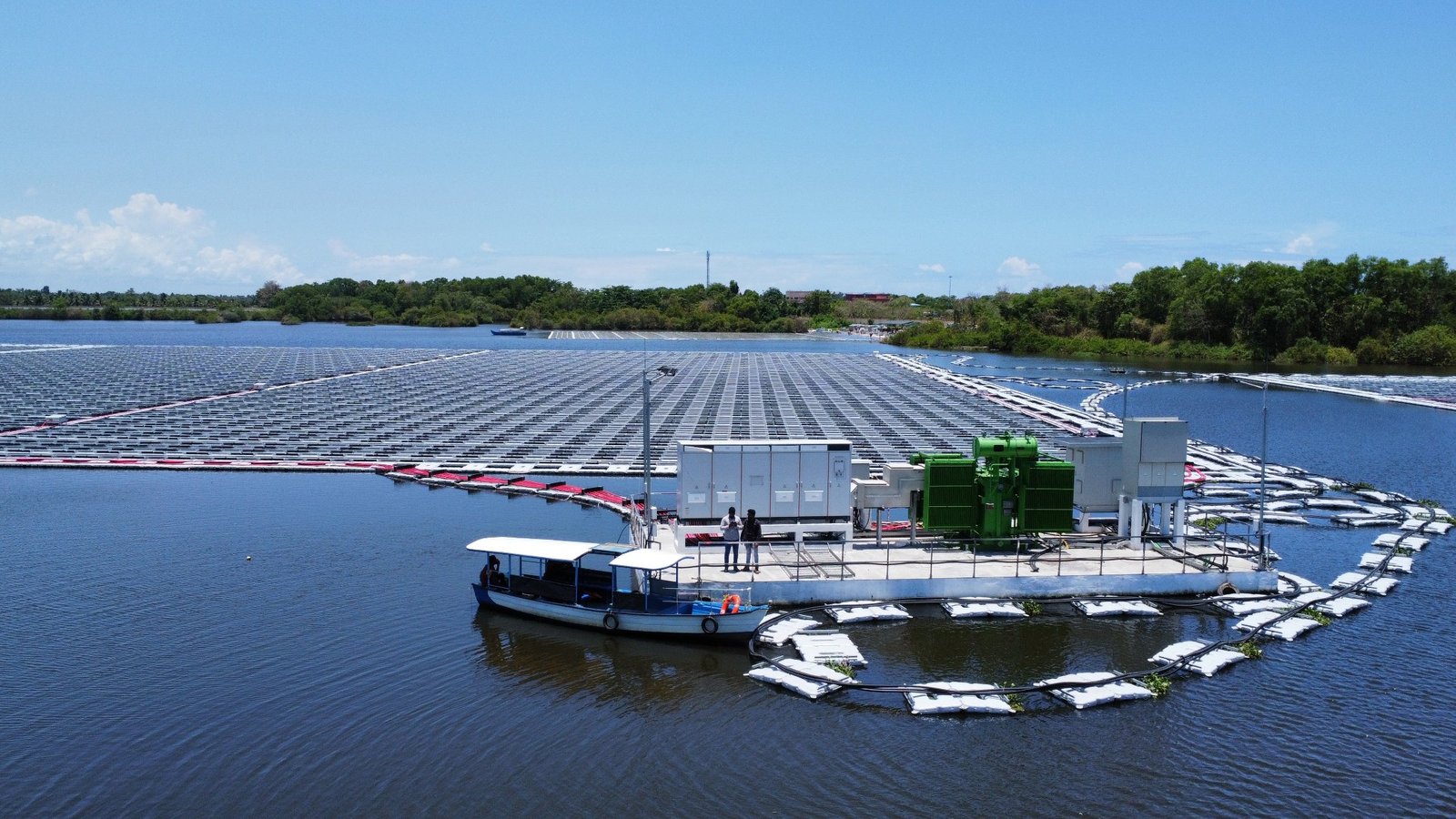


Introduction
In recent years, solar power has gained immense popularity as a clean and sustainable source of energy. Among the various methods of harnessing solar energy, floating solar panels have emerged as a promising solution. Floating solar power plants are constructed on water bodies, such as reservoirs, lakes, and ponds, utilizing the untapped potential of these areas. This article aims to assess the potential floating solar capacities in different states of India, highlighting the benefits and challenges associated with this innovative technology.
Floating Solar Power in India: An Overview
Floating solar power is a relatively new concept in India but has been gaining momentum due to its numerous advantages. The idea of installing solar panels on water bodies helps address the issue of land scarcity, which is a major concern in a densely populated country like India. Additionally, floating solar panels offer increased efficiency by leveraging the cooling effect of water, resulting in improved energy generation.
The Potential of Floating Solar Capacities in Different States
1. Maharashtra
Maharashtra, with its extensive coastline and numerous reservoirs, has the potential to harness significant floating solar capacities. The coastal regions, such as Ratnagiri and Sindhudurg, along with major reservoirs like Koyna and Jayakwadi, present favourable conditions for the implementation of floating solar power projects. The state government has already initiated plans to tap into this potential and promote the adoption of floating solar technologies.
2. Gujarat
Gujarat, known for its progressive approach towards renewable energy, has immense potential for floating solar capacities. The state's vast coastline and reservoirs provide suitable locations for the installation of floating solar panels. Additionally, the government's focus on renewable energy development and favorable policies make Gujarat an ideal destination for floating solar projects.
3. Tamil Nadu
Tamil Nadu, a leader in renewable energy generation, has shown great interest in exploring floating solar capacities. The state's abundant water bodies, including lakes and reservoirs, create opportunities for large-scale floating solar power plants. With its strong commitment to clean energy, Tamil Nadu has the potential to become a frontrunner in the implementation of floating solar technologies.
4. Kerala
Kerala, known for its picturesque backwaters and waterways, offers a unique opportunity for floating solar capacities. The state's vast network of canals and lagoons can be utilized for the installation of floating solar panels, harnessing the abundant sunlight while preserving the scenic beauty of the region. Kerala's focus on sustainable development makes it an attractive prospect for floating solar projects.
5. Andhra Pradesh
Andhra Pradesh, with its extensive coastline and reservoirs, holds considerable potential for floating solar capacities. The state's commitment to renewable energy and ambitious targets for solar power generation make it an ideal candidate for the deployment of floating solar technologies. The utilization of water bodies for solar power can significantly contribute to Andhra Pradesh's clean energy goals.
Benefits of Floating Solar Power
Floating solar power offers several advantages over traditional solar installations. Here are some key benefits:
Challenges and Mitigation Strategies
While floating solar power has numerous benefits, there are certain challenges that need to be addressed:
FAQs (Frequently Asked Questions)
1. Can floating solar panels be installed on any water body?
Floating solar panels can be installed on various types of water bodies, including reservoirs, lakes, and ponds. However, the feasibility of installation depends on factors such as water depth, water quality, and environmental considerations.
2. What is the lifespan of floating solar panels?
The lifespan of floating solar panels is similar to that of traditional solar panels, typically ranging from 25 to 30 years. Proper maintenance and periodic inspections can help maximize their longevity.
3. How do floating solar panels withstand adverse weather conditions?
Floating solar panels are designed to withstand various weather conditions, including wind and rain. Robust anchoring systems and flexible structures allow them to adapt to changing water levels and environmental factors.
4. Are floating solar power plants environmentally friendly?
Floating solar power plants have several environmental benefits. They help conserve land, reduce water evaporation, prevent algae growth, and contribute to the overall reduction of greenhouse gas emissions.
5. Can floating solar panels be integrated with other renewable energy sources?
Yes, floating solar panels can be integrated with other renewable energy sources such as wind and hydroelectric power. This hybrid approach offers a more sustainable and resilient energy generation system.
6. How does floating solar compare to land-based solar installations?
Floating solar installations offer distinct advantages over land-based solar installations, including efficient land use, increased energy generation, reduced water evaporation, and minimized transmission losses.
Conclusion
The assessment of potential floating solar capacities in different states of India highlights the vast opportunities for harnessing solar energy from water bodies. States like Maharashtra, Gujarat, Tamil Nadu, Kerala, and Andhra Pradesh possess favourable conditions and the vision to implement floating solar power projects. While there are challenges to overcome, the benefits of floating solar power make it a promising and sustainable solution for India's energy needs. By embracing this innovative technology, India can take significant strides towards a greener and cleaner future.